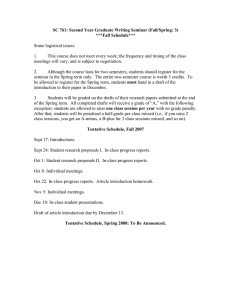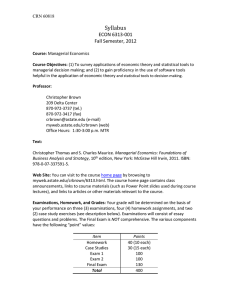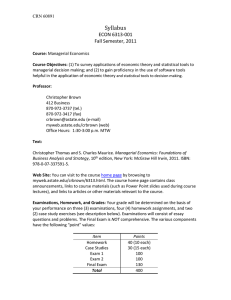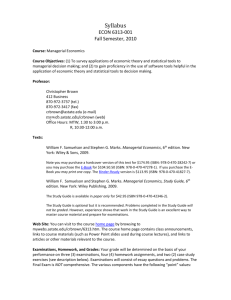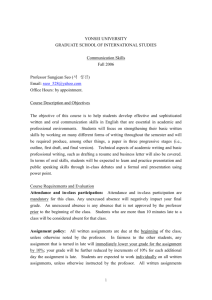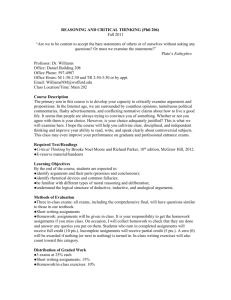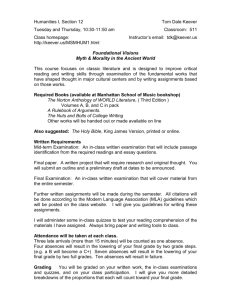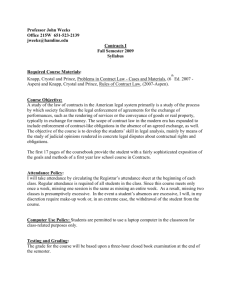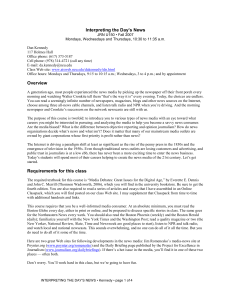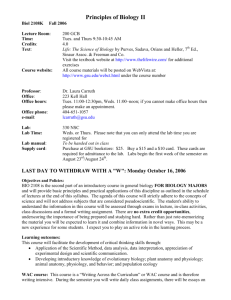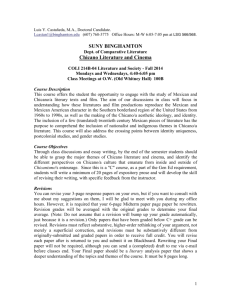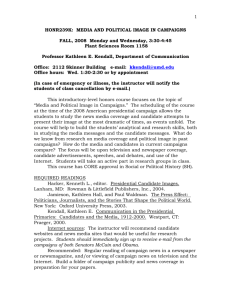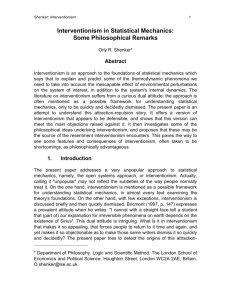Russian 490R: Global Diplomacy and Debate, Winter 2007
advertisement
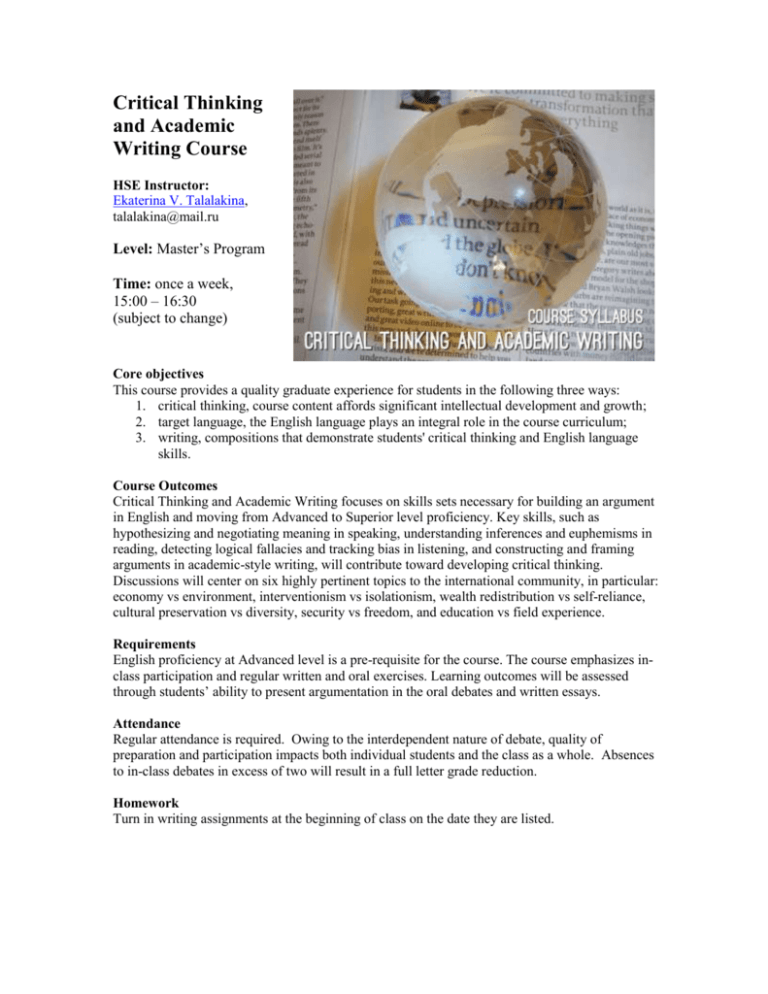
Critical Thinking and Academic Writing Course HSE Instructor: Ekaterina V. Talalakina, talalakina@mail.ru Level: Master’s Program Time: once a week, 15:00 – 16:30 (subject to change) Core objectives This course provides a quality graduate experience for students in the following three ways: 1. critical thinking, course content affords significant intellectual development and growth; 2. target language, the English language plays an integral role in the course curriculum; 3. writing, compositions that demonstrate students' critical thinking and English language skills. Course Outcomes Critical Thinking and Academic Writing focuses on skills sets necessary for building an argument in English and moving from Advanced to Superior level proficiency. Key skills, such as hypothesizing and negotiating meaning in speaking, understanding inferences and euphemisms in reading, detecting logical fallacies and tracking bias in listening, and constructing and framing arguments in academic-style writing, will contribute toward developing critical thinking. Discussions will center on six highly pertinent topics to the international community, in particular: economy vs environment, interventionism vs isolationism, wealth redistribution vs self-reliance, cultural preservation vs diversity, security vs freedom, and education vs field experience. Requirements English proficiency at Advanced level is a pre-requisite for the course. The course emphasizes inclass participation and regular written and oral exercises. Learning outcomes will be assessed through students’ ability to present argumentation in the oral debates and written essays. Attendance Regular attendance is required. Owing to the interdependent nature of debate, quality of preparation and participation impacts both individual students and the class as a whole. Absences to in-class debates in excess of two will result in a full letter grade reduction. Homework Turn in writing assignments at the beginning of class on the date they are listed. Class Topics This is a topic-based 15-week course meeting once a week for two academic hours (1h 20 m). Midterm and final exams are designed for three academic hours (120 m) each. Every topic is designed to be covered within two weeks. Oral debates are going to be held every second week of the topic discussion. Position papers are due every first week of the next topic. Schedule Dates Topics Week 1 Sept 01-07 Week 2-3 Week 4-5 Sept 8-21 Sept 22 – Oct. 5 Week 6-7 Oct. 6-19 Week 8 Week 9-10 Oct. 20-26 Oct. 27 – Nov. 2 Nov. 3-16 Week 11-12 Week 13-14 Week 15 Nov. 17-30 Dec. 1-14 Dec. 15-21 Course Overview/ Background knowledge check Economy vs Environment Interventionism vs. Isolationism Wealth-redistribution vs. Selfreliance Mid-term exam: Three topics Fall break Cultural preservation vs. Diversity Security vs. Freedom Education vs. Field Experience Final exam: Three topics Total: In-Class Hours 2 4 4 4 3 4 4 4 3 32 Class Evaluation Class Performance = 40%, Midterm exam = 20%, Final Exam = 40% Class performance: Attendance/Participation In-class Debates Vocabulary Quizzes Textbook Exercises Listening Assignments Position papers 12% 24% 12% 12% 10% 30% Course Materials: Main Textbook: Talalakina, E. V., N. A. Brown, J. Bown, and W. G. Eggington. 2014. Mastering English through Global Debate. Washington, D.C.: Georgetown University Press. Additional Books: Talalakina, E. V. and I. V. Yakusheva. 2011. Academic Skills through Cases in American Studies. Moscow: Higher School of Economics Publishing House. McCarthy, M. and F. O’Dell. 2008. Academic Vocabulary in Use. Cambridge University Press. Paterson, K. and R. Wedge. 2013. Oxford Grammar for EAP. Oxford University Press. Recommended Websites www.ted.com, www.quizlet.com, http://www.paperrater.com/free_paper_grader http://academics.hse.ru/writing_skills/levels,
